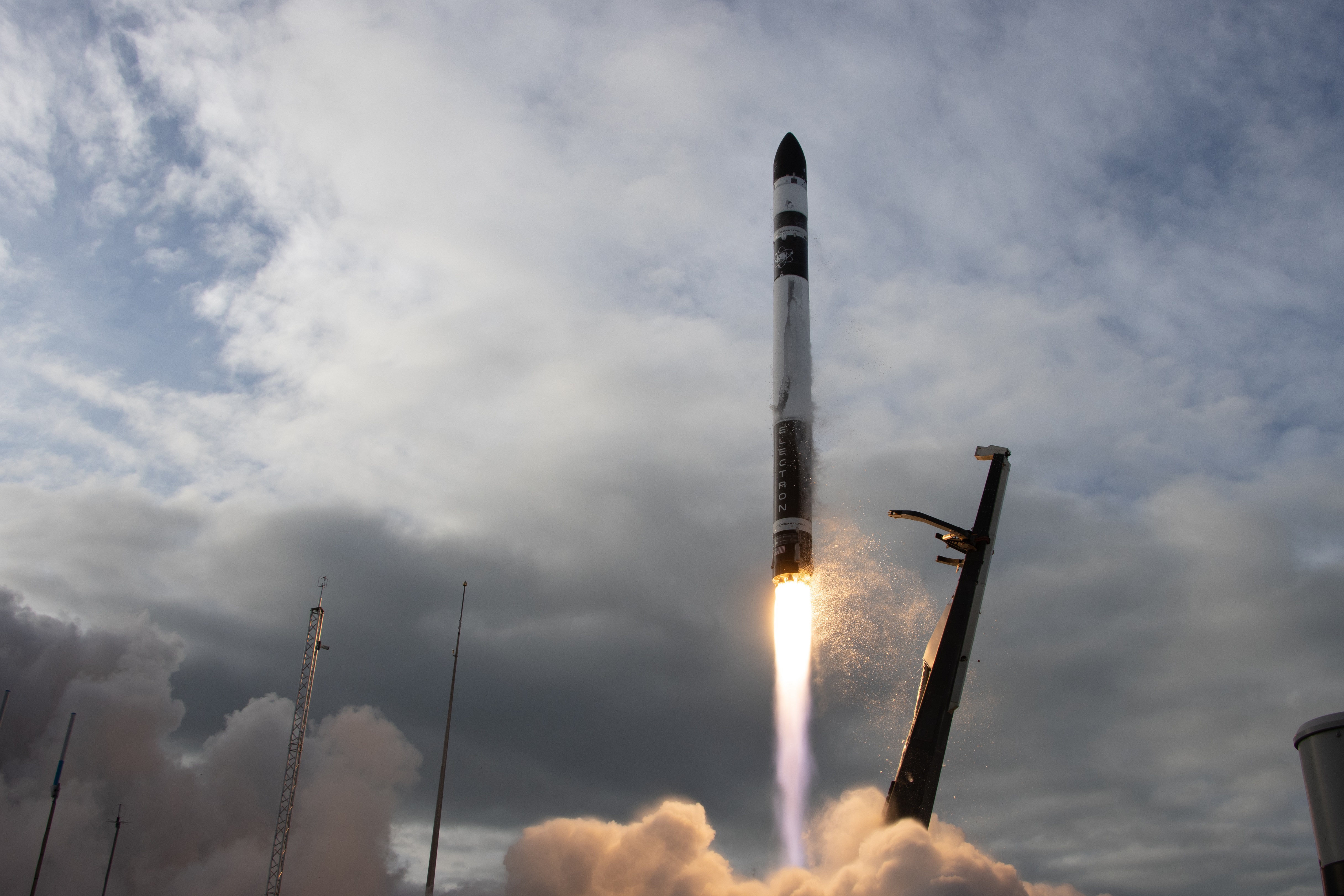
Rocket Lab has identified the cause of its July 4 launch failure and been cleared by the U.S. Federal Aviation Administration to start flying again, company representatives announced today (July 31).
The return-to-flight mission will lift off from the small-satellite launch company's New Zealand launch site sometime next month, if all goes according to plan. The customer and targeted launch date for the upcoming mission will be revealed soon, Rocket Lab representatives said.
Rocket Lab's two-stage Electron booster carried a streak of 11 straight successful missions into the July 4 launch, which was dubbed "Pics Or It Didn't Happen." (Rocket Lab gives all of its missions playful names.)
Related: Rocket Lab and its Electron booster in photos
That latest liftoff went well until several minutes into the burn of Electron's upper-stage engine. At that point, the engine shut down and the upper stage and seven payloads came crashing back to Earth.
After reviewing reams of data from the flight and performing a variety of tests, Rocket Lab traced the anomaly to a single faulty electrical connection in the upper stage.
"This connection was intermittently secure through flight, creating increasing resistance that caused heating and thermal expansion in the electrical component," company representatives explained in a statement today.
Get the Space.com Newsletter
Breaking space news, the latest updates on rocket launches, skywatching events and more!
"This caused the surrounding potting compounds to liquefy, leading to the disconnection of the electrical system and subsequent engine shutdown," they added. (Potting compounds surround and protect often-sensitive electrical equipment.) "The issue evaded preflight detection, as the electrical connection remained secure during standard environmental acceptance testing including vibration, thermal vacuum and thermal cycle tests."
Rocket Lab founder and CEO Peter Beck described the problem as "very, very sneaky and tricky" but said the company has a good handle on it now.
"We can actually mitigate it very easily through a slight change in production processes," Beck told reporters during a teleconference today. "But, more importantly, we can screen for it in current vehicles in stock through more in-depth testing procedures."
Each Electron upper stage has about six of these particular electrical components, Beck said during the teleconference. Rocket Lab has built 728 of the components to date, and none have experienced any problems except the one that failed on July 4.
Rocket Lab aims to greatly increase access to space using the 57-foot-tall (17 meters) Electron, which can loft about 500 lbs. (227 kilograms) to orbit on each mission. The company eventually wants to launch Electron weekly, or even more frequently than that, allowing large numbers of small satellites to get up and running efficiently and relatively cheaply.
This vision includes the operation of a second launch site, at the Mid-Atlantic Regional Spaceport in Virginia, from which Rocket Lab plans to lift off for the first time later this year. The company also wants to start reusing the first stages of Electron, which at the moment is an expendable rocket.
Rocket Lab aims to recover used Electron boosters using helicopters, which will snag the falling boosters as they fall after successful launches. We should see this bold plan put into action soon, Beck said.
"Flight 17 is scheduled for a full recovery flight, so keep an eye out for that one," he said during today's teleconference. The upcoming return-to-flight mission will be Electron's 14th liftoff.
Mike Wall is the author of "Out There" (Grand Central Publishing, 2018; illustrated by Karl Tate), a book about the search for alien life. Follow him on Twitter @michaeldwall. Follow us on Twitter @Spacedotcom or Facebook.
Join our Space Forums to keep talking space on the latest missions, night sky and more! And if you have a news tip, correction or comment, let us know at: community@space.com.

Michael Wall is a Senior Space Writer with Space.com and joined the team in 2010. He primarily covers exoplanets, spaceflight and military space, but has been known to dabble in the space art beat. His book about the search for alien life, "Out There," was published on Nov. 13, 2018. Before becoming a science writer, Michael worked as a herpetologist and wildlife biologist. He has a Ph.D. in evolutionary biology from the University of Sydney, Australia, a bachelor's degree from the University of Arizona, and a graduate certificate in science writing from the University of California, Santa Cruz. To find out what his latest project is, you can follow Michael on Twitter.









